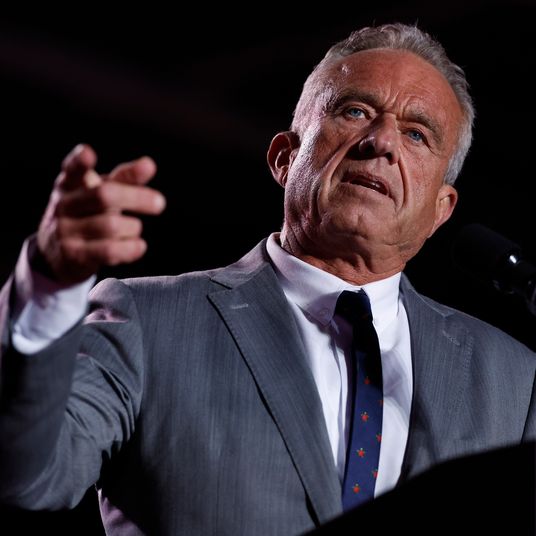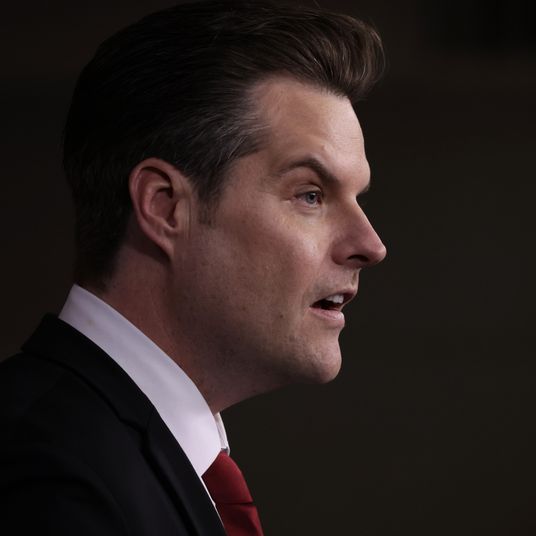
The world’s leaders formally committed Wednesday to “transitioning away from fossil fuels.” In the 28 years since the United Nations began holding annual summits on climate change, the global community had never before explicitly agreed to ditch dinosaur juice. Previously, many oil-rich nations had pledged to reduce carbon emissions, but not fossil-fuel use or production. Now, Saudi Arabia, the UAE, and others have agreed that the world should accelerate a global shift away from oil, gas, and coal in a “just, orderly, and equitable manner” over the coming decade.
That global pact capped off the 28th United Nations Climate Change Conference in Dubai, where many diplomats hailed the agreement as a breakthrough. Wopke Hoekstra, the European commissioner for climate action, said that the new global pact marked “the beginning of the end of fossil fuels.” Dan Jorgensen, Danish minister for climate and energy, declared, “We’re standing here in an oil country, surrounded by oil countries, and we made the decision saying, ‘Let’s move away from oil and gas.’”
Some climate advocates, meanwhile, noted that the agreement’s details are much friendlier to fossil fuels than its abstract commitment to their eventual displacement. For example, the pact affirms that natural gas can play a role in decarbonization by replacing more carbon-intensive fuels such as coal and oil. And the agreement also counsels an acceleration in the deployment of carbon capture and storage technology, which is the fossil-fuel industry’s preferred answer to the problem of global warming.
In truth, though, both these factions overstate the significance of the agreement’s wording. The world has already formally committed to preventing global temperatures from growing more than 1.5 degrees hotter than the preindustrial norm. The indefinite use of fossil fuels is plainly incompatible with that commitment. By itself, making this fact explicit achieves little.
At the same time, the agreement’s concessions to fossil-fuel interests don’t create new political constraints on decarbonization so much as they reflect pre-existing ones. Even if the myriad nonprofit organizations at the U.N. conference had somehow managed to browbeat the assembled petrostates into disavowing the long-term use of natural gas, it’s unlikely that such use would be significantly affected. The U.N. pact is not a legally binding document. And its signatories are ultimately accountable to their nations’ mass publics, not advocacy organizations with small membership bases. Those publics generally have little tolerance for rising energy prices or declining living standards. The pace of decarbonization will therefore be set less by diplomats’ paper promises than by the speed at which cheap, effective alternatives to fossil fuels can be developed and deployed.
Of course, public policy has the power to slow or accelerate the tempo of technological progress. There is no apolitical route to sustainability. But what matters politically is money not words.
In saying this, I don’t mean to assert that Wednesday’s climate deal is of no value. Political leaders care somewhat about their international prestige. Reinforcing the global community’s ostensible commitment to decarbonization could therefore nudge leaders toward making necessary investments, all else equal. Nevertheless, until this week’s rhetorical pledges get translated into financial ones, the significance of the U.N.’s latest climate conference will remain hypothetical.
Voters fear rising prices more than rising emissions.
In truth, the fundamental obstacle to rapid decarbonization is not the moral cowardice of political leaders or the perfidy of the fossil-fuel industry. Rather, it’s the fact that it is not currently possible to drastically reduce fossil-fuel use while simultaneously increasing global living standards. And most humans are more tolerant of rising carbon emissions than they are of falling or stagnant incomes.
This has long been apparent in the United States. In a 2018 AP-NORC survey, less than half of working-class respondents said that they would be willing to pay $1 more in monthly electric bills for the sake of combating climate change; when that sum was raised to $10 a month, opposition among all voters was overwhelming. That same year, in the heavily Democratic state of Washington — amid a “blue wave” election that saw exceptionally high Democratic turnout — a carbon-tax referendum lost by a 56 to 44 percent margin.
This doesn’t mean that American voters have no concerns about climate change. In the AP’s poll, large majorities of voters favored government action to combat rising temperatures when the attendant tradeoffs were small or unmentioned. But their priorities are clear: U.S. voters don’t punish elected officials for presiding over rising carbon emissions, yet routinely punish them for presiding over increases in the cost of living.
That the American electorate is more worried about such costs than future warming is reinforced by recent horserace polling. In November, Democracy Corps, a Democratic advisory group, surveyed 2,500 voters in battleground states and districts. Respondents said that “Biden and the Democrats” would be better on climate change than “Trump and the Republicans” by a 15-point margin. But they also said that Trump and his party would be better on the cost of living by 17 points. And they ultimately favored Trump over Biden.
More direct evidence of the public’s prime concerns can be found in Gallup’s polling on the “most important problem” facing the country. In November, 33 percent of respondents named an economic issue as their nation’s top problem, while just 2 percent mentioned pollution, the environment or climate change.
The American electorate’s priorities are typical (even if the carbon-intensity of its consumption is exceptional). Across OECD countries, voters judge their governments’ failures to keep a lid on energy prices more harshly than their failures to cut emissions.
Even authoritarian nations like China must show some deference to the mass public’s cost of living concerns. The CCP’s legitimacy rests in no small part on its success in delivering rising living standards. And its energy policies evince a clear commitment to sustaining such advances, even at great environmental expense.
What’s more, most nations in the Global South are, understandably, even more inclined to prioritize rapid economic development over timely decarbonization. African nations criticized Wednesday’s agreement for its implication that all countries have an obligation to begin shifting away from fossil fuels. “Asking Nigeria, or indeed, asking Africa, to phase out fossil fuels is like asking us to stop breathing without life support,” Ishaq Salako, Nigeria’s environmental minister, told the New York Times. “It is not acceptable and it is not possible.”
Unless the wealthy world provides poor nations with considerable financial assistance — and/or low-cost green technologies that render fossil-fuel development economically undesirable — such nations are going to exploit their own oil and gas reserves. And unless rich countries fully resolve the technological and regulatory obstacles to carbon-neutral energy grids, the economic incentives to develop and export fossil fuels will remain strong.
It’s easy to rip up paper promises.
For these reasons, we would expect shifts in official rhetoric about climate change to have less of an impact on emissions than shifts in the material costs of decarbonization. And this is precisely what we’ve seen. At the 26th U.N. climate summit in Glasgow two years ago, nations pledged to “phase down” coal-fired power plants. Yet when European nations lost ready access to Russian natural gas in the wake of Putin’s invasion of Ukraine, they reactivated coal plants to compensate. India and China, meanwhile, continued to put growth before sustainability, propelling global coal use to record highs.
Similarly, since global governments committed to a 1.5-degree Celsius warming target in 2015, the world has continued emitting carbon at a pace wholly incompatible with that goal.
More locally, New York’s climate policies provide further testament to the relative impotence of emissions targets. In 2019, the Empire State committed to making its electricity grids 100 percent emissions free by 2040. Yet in the four years since then, the carbon intensity of New York’s electricity has actually increased.
This is because the state’s officials refused to prioritize its abstract commitment to a carbon-free 2040 over the immediate interests of powerful interest groups and the broader electorate. New York’s environmental organizations had long been campaigning to close the Indian Point nuclear-power plant despite the fact that it provided a vital source of carbon-free, non-intermittent electricity.
After the plant shut down, New York’s carbon emissions from in-state power generation shot up by 35 percent. Before the closure, fossil fuels generated 77 percent of downstate New York’s electricity; afterward, they supplied 89 percent.
Theoretically, this uptick in fossil-fuel reliance is supposed to be temporary, as the state’s buildout of renewables will eventually eliminate its need for natural gas. But that plan requires both a significant acceleration of renewable-energy deployment and technological progress on batteries or some other carbon-free solution to renewables’ intermittency problem.
Unfortunately, expediting the renewables buildout has come into conflict with constraining cost-of-living increases in the state. With materials prices and interest rates both rising, the state’s offshore-wind developers demanded higher subsidies from ratepayers in order to complete their projects. But New York’s utility regulator prioritized keeping electricity bills down over ensuring the timely expansion of wind power.
Making matters worse, New York governor Kathy Hochul recently blocked the construction of a wind-power transmission line because it would have impinged on some park land in Long Island. Yet again, organized groups’ interest in an immediate quality-of-life concern trumped decarbonization, despite the state’s ostensibly aggressive climate target.
If New York does not find some way of expediting its renewables buildout — while humanity simultaneously makes technological progress on batteries — then its elected leaders will eventually be forced to choose between forfeiting its 2040 goal or allowing the state to suffer routine electricity shortages. Climate hawks will not win that argument.
All of which is to say, whatever rhetorical commitments do or do not make it into global agreements, the climate’s long-term health will depend on the pace of green-technology development and deployment. Speeding that pace requires material resources and regulatory reforms, not bold (yet non-binding) promises. We need to continue making public investments in green technology while eliminating legal obstacles to clean-energy construction. And we need to make it more worthwhile for developing countries to industrialize sustainably through the provision of financing and fiscal aid.
Cheap green energy can get the world off fossil fuels. Cheap words cannot.






























